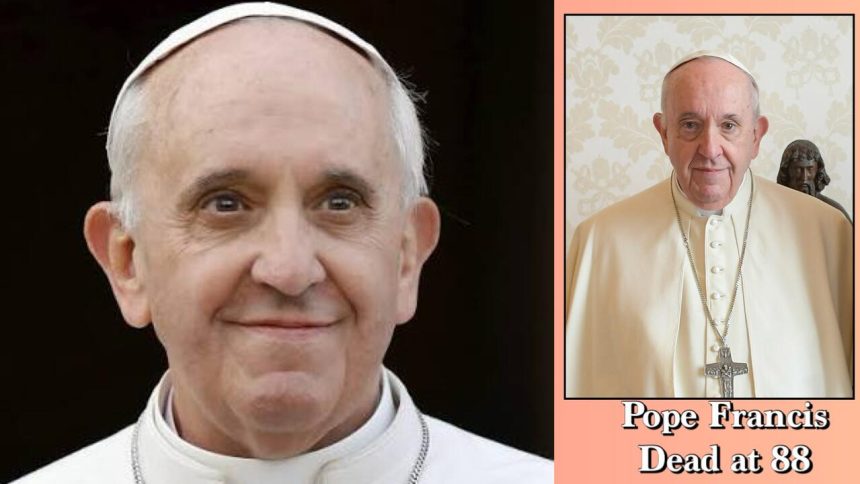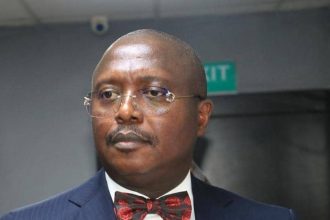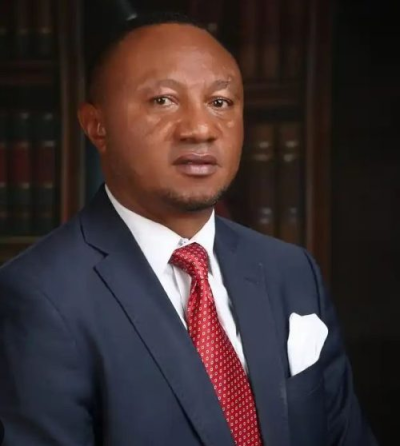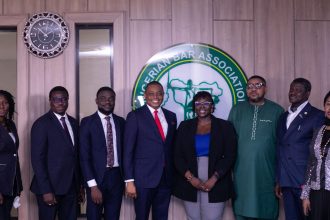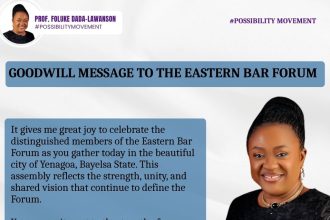The Vatican has announced with deep sorrow the death of His Holiness, Pope Francis, at the age of 88. The Pontiff, born Jorge Mario Bergoglio, passed away peacefully at 7:35 a.m. local time on Easter Monday in his residence at the Vatican’s Casa Santa Marta, following complications from a recent illness that had increasingly kept him away from public liturgies and papal engagements.
The news, which reverberated across the Catholic world and beyond, was formally confirmed in a solemn statement by Cardinal Kevin Farrell, Camerlengo of the Holy Roman Church, who will now oversee the Vatican’s period of Sede Vacante — the interregnum until a new pope is elected.
“Dearest brothers and sisters, with deep sorrow I must announce the death of our Holy Father Francis. At 7:35 a.m. this morning, the Bishop of Rome, Francis, returned to the house of the Father. His entire life was dedicated to the service of the Lord and His Church,” Cardinal Farrell announced.
“He taught us to live the values of the Gospel with fidelity, courage, and universal love, especially in favour of the poorest and most marginalised. With immense gratitude for his example as a true disciple of the Lord Jesus, we commend the soul of Pope Francis to the infinite merciful love of the One and Triune God.”

A Humble Pastor, A Global Voice for Compassion
Pope Francis’ death marks the end of an extraordinary papacy that began on March 13, 2013, following the historic resignation of Pope Benedict XVI. Born on December 17, 1936, in Buenos Aires, Argentina, Jorge Mario Bergoglio made history as the first Jesuit pope, the first pope from the Americas, and the first non-European pontiff in more than 1,200 years.
His pontificate will be remembered for its unwavering emphasis on mercy, simplicity, and social justice. From the first moment he stepped onto the balcony of St. Peter’s Basilica to address the faithful as “Fratelli e sorelle, buonasera” — “Brothers and sisters, good evening” — Pope Francis embodied humility and reform.
He shunned the traditional papal apartments in favour of the modest Vatican guesthouse, Casa Santa Marta, and drove a second-hand Renault instead of a luxury vehicle. His down-to-earth style, combined with his sharp moral voice, earned him admiration from religious and secular communities alike.
A Legacy Rooted in Reform and Human Dignity
Throughout his 12-year tenure, Pope Francis championed the plight of the poor, the displaced, and the environment. His encyclical Laudato Si’ (2015) called on humanity to care for “Our Common Home” and remains a seminal text on environmental stewardship within faith communities.
In Fratelli Tutti (2020), he offered a roadmap for global fraternity and social friendship, challenging both political isolationism and economic inequality.

Francis’ papacy also saw significant — though often controversial — efforts to reform the Catholic Church’s approach to internal governance, financial transparency, and the global clergy sexual abuse crisis. While critics sometimes questioned the pace or depth of his structural reforms, few doubted the sincerity of his commitment to pastoral care and accountability.
The Final Days: A Farewell of Faith and Courage
The Pope’s declining health became increasingly apparent over the last year, punctuated by repeated hospitalisations and respiratory complications, including bronchitis. Despite visible frailty, Pope Francis continued to fulfil his spiritual duties, most recently delivering his final Urbi et Orbi blessing on Easter Sunday.
In what now reads as a profound spiritual farewell, the Pope’s last public address centered on the enduring power of hope and the victory of love over despair.
“Love has triumphed over hatred, light over darkness, and truth over falsehood. Forgiveness has triumphed over revenge,” he proclaimed to the world.
“Evil has not disappeared from history; it will remain until the end, but it no longer has the upper hand; it no longer has power over those who accept the grace of this day.”
Even as his physical strength waned, his heart remained with the world’s suffering. In particular, he used his final address to highlight the ongoing humanitarian disaster in Gaza and the Holy Land, urging the global community to “come to the aid of a starving people that aspires to a future of peace.”
Mourning and Global Tributes
World leaders, religious figures, and millions of Catholics worldwide have begun to pay tribute to the late pontiff. Flags have been lowered to half-mast at the Vatican, and St. Peter’s Basilica is expected to host a Requiem Mass attended by heads of state, religious dignitaries, and mourners from across the globe.
The Vatican will soon convene a conclave of cardinals to elect Pope Francis’ successor. Until then, the global Catholic Church enters a period of mourning for a man who devoted his life to the Gospel, to human dignity, and to the mission of making the Church “a field hospital after battle” — a place of refuge for the broken and the lost.
A Pope for the Marginalized
Pope Francis will be remembered not only for his historical “firsts” but for his relentless pursuit of a Church that walks beside the most vulnerable. Whether advocating for refugees, visiting prisons, or washing the feet of migrants on Holy Thursday, Francis’ papacy embodied his personal conviction that “a little bit of mercy makes the world less cold and more just.”
The world now bids farewell to a pontiff whose leadership redefined modern Catholicism — a pastor-pope whose vision stretched beyond the walls of the Vatican to the streets of the world.



